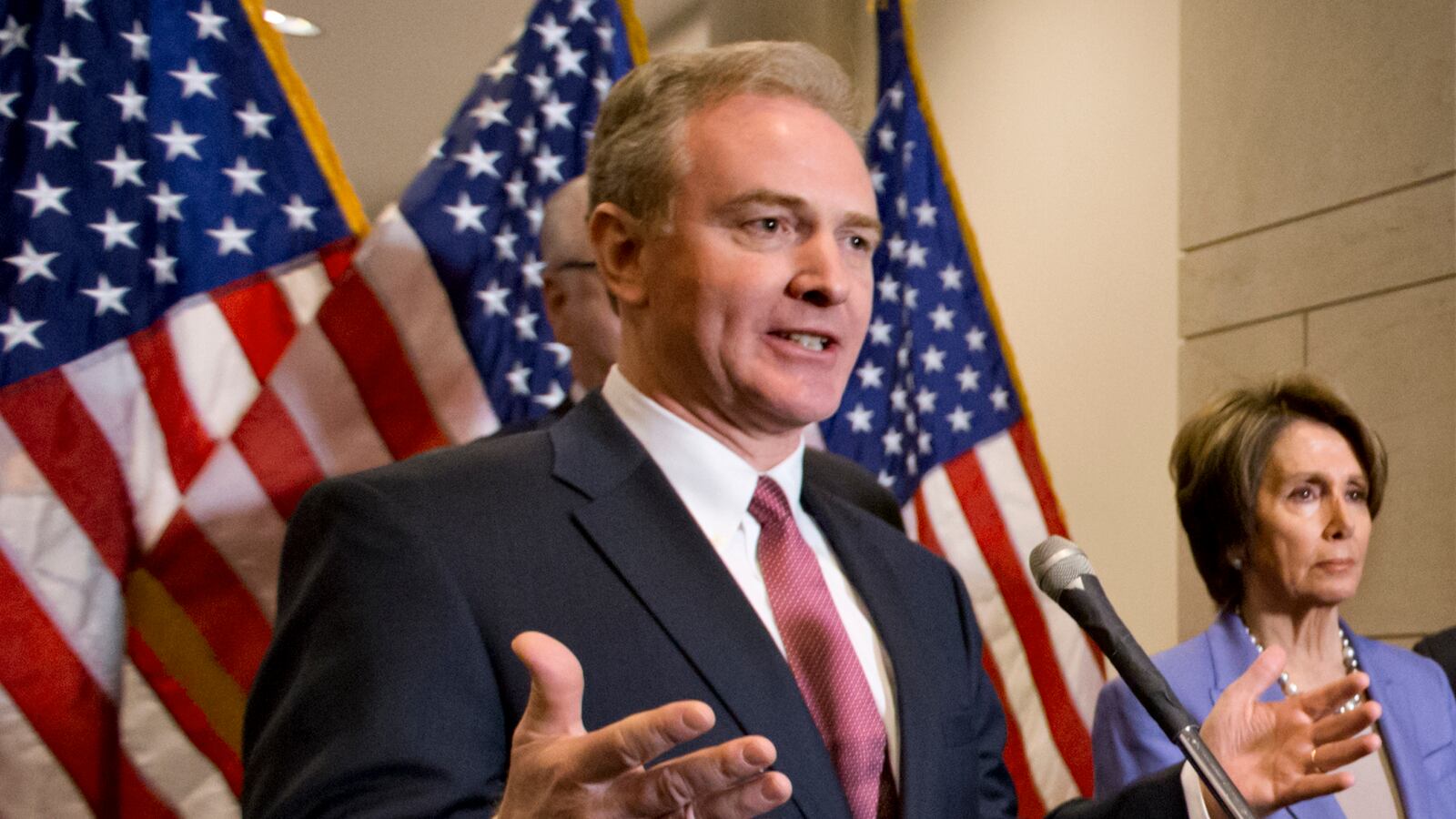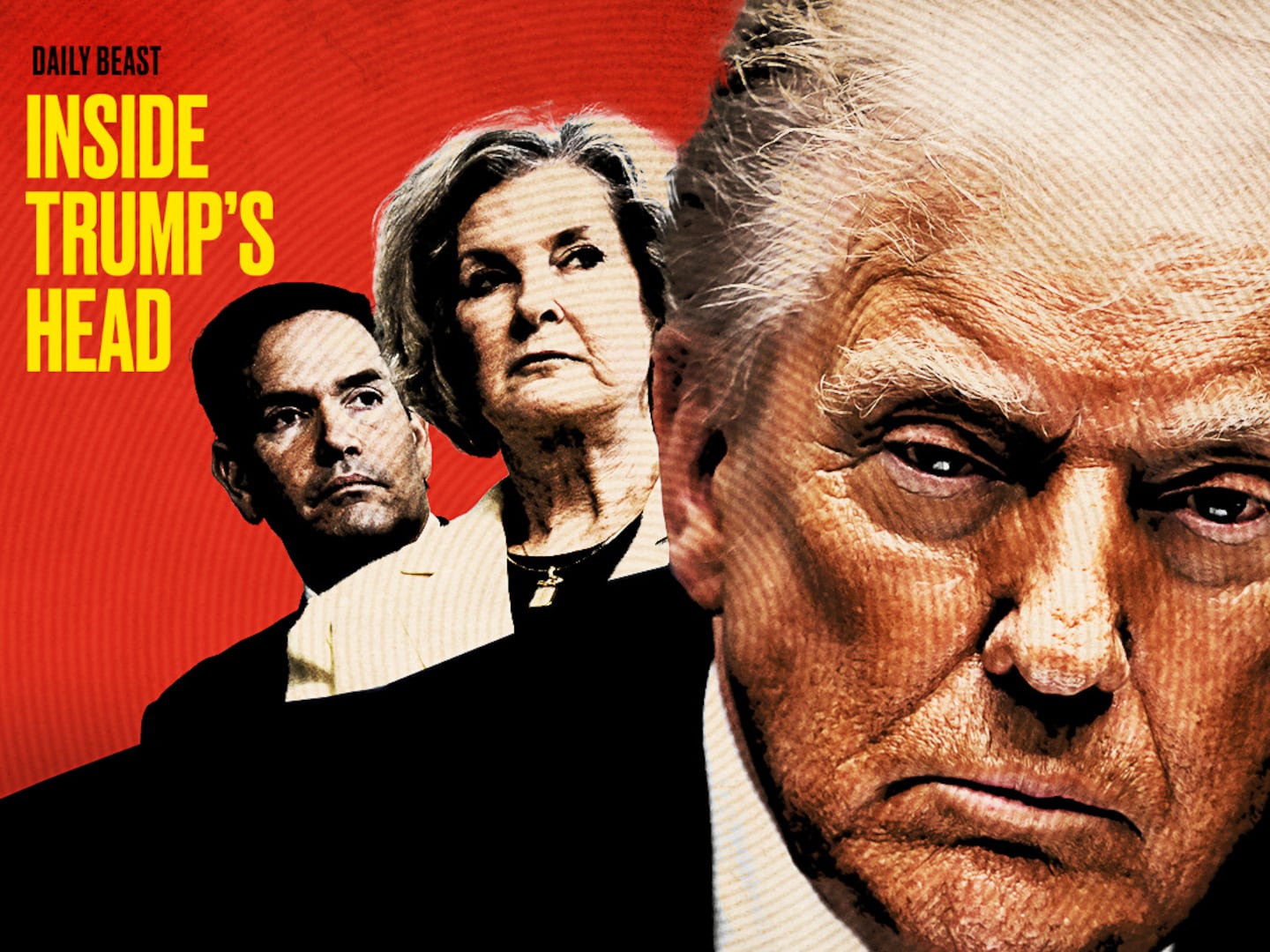Now that everybody on Capitol Hill has had a chance to vent against the IRS, questions remain. What will Congress do to fix the problem? And what exactly is the problem?
Democratic Rep. Chris Van Hollen has an idea so simple it’s a wonder that it hasn’t been acted upon before now. He is joining with two campaign finance watchdog groups to file suit against the IRS to require the agency to follow the law that says tax-exempt status can be granted to groups “exclusively” engaged in social welfare, striking a 1959 IRS regulation that allows groups “primarily” engaged in these activities to gain favorable tax status.

“You don’t have to be an English major to know they have entirely different meanings,” Van Hollen told The Daily Beast. “The law had a very bright line test. The IRS would never have been in this mess if the IRS had properly interpreted the law.”
It’s a small change, just one word, but it has had enormous consequences. If the IRS had stuck to the original ruling, agency workers in Cincinnati would not have been judging social welfare content versus political activity, and then awarding tax status based on margins as narrow as 51.1 versus 49.9 percent. “What the suit says is the IRS really shouldn’t be in the middle of these interpretations,” says Van Hollen, a view he held before the scandal about improper IRS targeting of political groups erupted on Capitol Hill.
He has been working with Democracy 21 and Campaign Legal Center since 2011, when they filed a petition with the IRS challenging its distinction between “exclusively” and “primarily.” The IRS did not respond, so the next step is a lawsuit, and in legalese Van Hollen as a member of Congress has “the standing” to push the suit forward. In the House, he is the go-to person on campaign finance in the same way that Republican John McCain and Democrat Russell Feingold in the Senate carried the issue in the decade before the Supreme Court upended what was left of their legislative work with its 2010 Citizens United ruling.
The Citizens United decision opened the floodgates to anonymous donations to social welfare groups as long as they spent a fraction less than 50 percent of their time on political work. In response, Van Hollen authored the Disclose Act, which passed the House in 2010 but fell short by one vote of a super-majority in the Senate.
In an action that parallels and foreshadows his case against the IRS, he filed suit last year against the Federal Election Commission (FEC), challenging its interpretation of a rule requiring donors who give more than $1,000 to groups that engage in political activity to have their names disclosed. The FEC narrowed the rule to apply only when the donor specifies the money is going to a particular campaign ad. “It doesn’t take an especially savvy donor to hand the money over with a wink and a nod,” says Adam Skaggs, senior counsel with the Brennan Center.
Van Hollen won the FEC suit at the District Court level, but the Circuit Court remanded it with questions. A decision is expected by late summer or early fall, which is relatively speedy given the leisurely pace of the justice system. Asked why he chose to go around Congress and utilize the courts to fix the problem of the IRS, Van Hollen countered that this is actually a case where the IRS circumvented the will of Congress as articulated in the original statute.
Although abuse of C-4 tax status looms large today because of the political fallout, it is a tiny portion of the agency’s work, says Melanie Sloan, executive director of CREW (Citizens for Responsibility and Ethics in Congress), which she thinks is why complaints lodged by CREW and others went unheeded for so long both at the IRS and at the White House. In April, CREW filed a petition with the IRS asking essentially for the same thing as Van Hollen, that the agency revert to the original wording of the statute. Sloan told The Daily Beast, “We welcome other plaintiffs trying to move the IRS. They’ve had 50 years to deal with this and they haven’t done it. That’s why court action is necessary—it’s so difficult to get anything through Congress.”
Democrat Sen. Max Baucus, who chairs the Senate Finance Committee, says he wants to address the C-4 loophole in tax reform. “But who knows if tax reform will happen,” comments Sloan, who points out that Republican Sen. Orrin Hatch is the ranking member on the committee, and he has shown no interest in closing the loophole. In 2011, when there was an effort to require donors to these groups to pay a gift tax, “Hatch basically threw a fit, and the IRS backed off,” says Sloan. “The IRS gets in trouble almost no matter what it does. They’d probably be happy to have a court order to do something so they could say they have no choice.”






